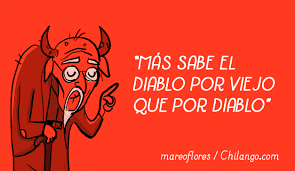E.J. Dionne and the 2016 Election
Last June, I reviewed E.J. Dionne Jr.'s Our Divided Political Heart: The Battle for the American Idea in an Age of Discontent.
You can find the review here. I like Dionne, as a writer in The Washington Post and Commonweal, and I enjoy his contributions to MSNBC.
Since 2004, Dionne writes a new book in a presidential election year-- 2004, 2008, 2012, and, now, 2016. Given my delight in his 2012 offering mentioned above, I sought out his 2016 title: Why the Right Went Wrong: Conservatism From Goldwater to the Tea Party and Beyond. As I delighted in his Our Divided Political Heart, I had high expectations for Why the Right Went Wrong. Frankly, it was a much more difficult read, likely not a reflection at all on Dionne's work. In fact, I think that it has much to do with me and how I find myself (and our country).
I resided in Chile during the 2012 election. While I devoured the news that I could find via El Mercurio and my reading of Politico's Playbook and online versions of U.S. news., I still experienced that election at a distance. Reading Dionne's 2012 work was, then, a deeper dive into the currents around that election.
In 2016, I find myself with this book encircled by news of the election. While I reside in a home without cable television, I have access to round-the-clock accounts of the election at work, in the newspapers, and in my Facebook and Twitter feed. Sadly, whether my preferred candidate win or lose, the country seems so badly divided, and our political discourse, while not lofty before, seems so badly eroded and so coarse as we race to the bottom in 2016.
In short, Dionne pulls together intellectual strands and tensions within conservative thought. Dionne retells the story of the Republican party and conservatism from the days of President Dwight D. Eisenhower and the the 1964 campaign of Barry Goldwater alongside William F. Buckley's efforts to create an intellectual foundation for broad currents of conservatism. Dionne revisits all the elections and administration from Eisenhower to 2016 and assesses the adjustments and realignments (and missed opportunities) made within the Republican party for each election. While I was familiar with the general sweep of the history he retold, I did encounter nuggets unknown to me that made the journey a bit more worthwhile.
The final chapter, as any good whodunit requires, suggests important lines for a renewed conservatism, albeit the unrequested suggestion of a liberal (Dionne). He ignites my desire to revisit Edmund Burke's 1790 Reflections on the Revolution in France, a classical defense of conservatism, read in my undergraduate days. While a fine book, it is a depressing romp through the history that brings us to such an ugly, partisan mess in Washington.
Since 2004, Dionne writes a new book in a presidential election year-- 2004, 2008, 2012, and, now, 2016. Given my delight in his 2012 offering mentioned above, I sought out his 2016 title: Why the Right Went Wrong: Conservatism From Goldwater to the Tea Party and Beyond. As I delighted in his Our Divided Political Heart, I had high expectations for Why the Right Went Wrong. Frankly, it was a much more difficult read, likely not a reflection at all on Dionne's work. In fact, I think that it has much to do with me and how I find myself (and our country).
I resided in Chile during the 2012 election. While I devoured the news that I could find via El Mercurio and my reading of Politico's Playbook and online versions of U.S. news., I still experienced that election at a distance. Reading Dionne's 2012 work was, then, a deeper dive into the currents around that election.
In 2016, I find myself with this book encircled by news of the election. While I reside in a home without cable television, I have access to round-the-clock accounts of the election at work, in the newspapers, and in my Facebook and Twitter feed. Sadly, whether my preferred candidate win or lose, the country seems so badly divided, and our political discourse, while not lofty before, seems so badly eroded and so coarse as we race to the bottom in 2016.
In short, Dionne pulls together intellectual strands and tensions within conservative thought. Dionne retells the story of the Republican party and conservatism from the days of President Dwight D. Eisenhower and the the 1964 campaign of Barry Goldwater alongside William F. Buckley's efforts to create an intellectual foundation for broad currents of conservatism. Dionne revisits all the elections and administration from Eisenhower to 2016 and assesses the adjustments and realignments (and missed opportunities) made within the Republican party for each election. While I was familiar with the general sweep of the history he retold, I did encounter nuggets unknown to me that made the journey a bit more worthwhile.
The final chapter, as any good whodunit requires, suggests important lines for a renewed conservatism, albeit the unrequested suggestion of a liberal (Dionne). He ignites my desire to revisit Edmund Burke's 1790 Reflections on the Revolution in France, a classical defense of conservatism, read in my undergraduate days. While a fine book, it is a depressing romp through the history that brings us to such an ugly, partisan mess in Washington.





Comments
Post a Comment